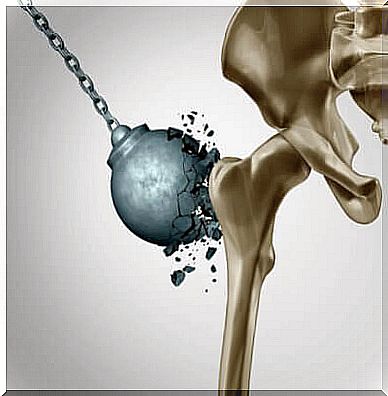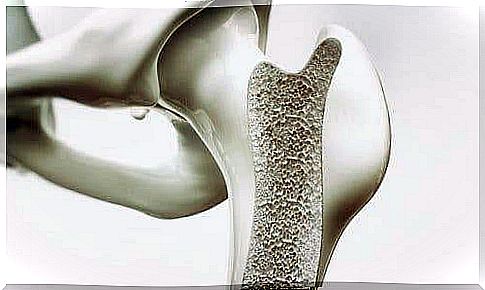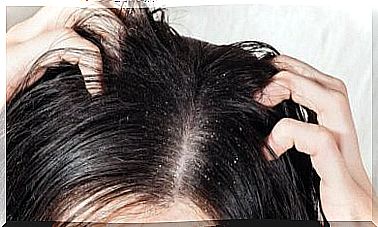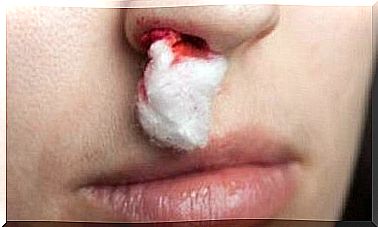Reducing The Damage Of Osteoporosis After Menopause
Osteoporosis is a bone disease that can develop more often in a woman’s body after the onset of menopause. We have to remember that this is a disease that is very much related to habits.

Time does not stand still, it is inevitable. Fortunately, the present time allows us to enter old age with grace and strength. Many patients have even managed to delay the symptoms of pathologies or degenerative processes. The case of women with osteoporosis after menopause falls into this category.
It is a bone disease that causes a weakening of the micro-architecture of the skeleton, leading to loss of bone mass, as indicated in an article published in the Annals of Internal Medicine . This pathology is capable of generating unexpected fractures and fragilities.
Sometimes the development of this disease goes unnoticed, because its symptoms are silent. However, its onset can be very painful.
As the loss of skeletal mass increases, the holes in the internal tissues of the bone become larger. This results in structural weakening at the point of failure. It is common to find spinal injuries or deformities of the spine among those affected.
Women and osteoporosis

Some diseases tend to appear more in a group of people than in others, due to their specific organic conditions. In the case of osteoporosis, age and gender are two important influencing factors.
When you reach adulthood, the quality of bones begins to decline. This is why it is a pathology that usually appears at an advanced age. In addition, women are more likely to suffer from this condition. This is due to structural calcium losses resulting from reduced estrogen production.
In this sense, eating habits before and during menopause can increase the risk of suffering from this condition. This is especially true if you have a genetic history or a calcium deficiency. Some research has shown that heredity plays a role in the incidence of the disease. Osteoporosis after menopause is also one of the most common conditions during this time.
Treatment of osteoporosis after menopause
A healthy lifestyle involves taking care of your diet and increasing your physical activity. In the case of osteoporosis after menopause, the key is a diet rich in calcium and vitamin D. It is advisable to consult specialists who can draw up the appropriate plan according to the case.
Green vegetables and some seeds contain more of these nutrients than traditional dairy products. On the other hand, magnesium is excellent as a dietary supplement. With regard to vitamin D, exposure to the sun and the consumption of certain foods, such as fish, contribute to its intake.
Move your body
It’s not all about food. Physical activity has been shown to maintain the quality of muscles and bones over time. Although the intensity of exercise may decrease after menopause, it is important to make every effort to maintain it. Strength training helps reduce the incidence and severity of this condition, according to a study published in 2019.
A daily 20 minute walk is always helpful. The practice of sports or adapted exercises can increase bone density. Yoga is a good example.
In all cases, it is also advisable to be supervised by qualified physical trainers who develop a training plan adapted to each person. This is an important aspect in reducing the risk of traumatic events for the skeleton and muscle tissue.
As with good habits, in some cases physiotherapy can reduce the negative effects of the disease on the body.
Osteoporosis after menopause: calm and be careful

Excessive consumption of certain types of foods has been shown to lead to risk of fractures, such as those high in simple sugars or trans fats. The same goes for cigarettes and alcohol. These are products that promote the destruction of bones.
Stillness or excessive sedentary lifestyle also promotes weak bones, which increases the sensation of pain. However, exercise should be done with the greatest moderation and caution to avoid accidents.
For all these reasons, a proper diet before and during menopause, as well as frequent physical activity and elimination of bad habits can significantly help to avoid complications at this stage, such as osteoporosis.









